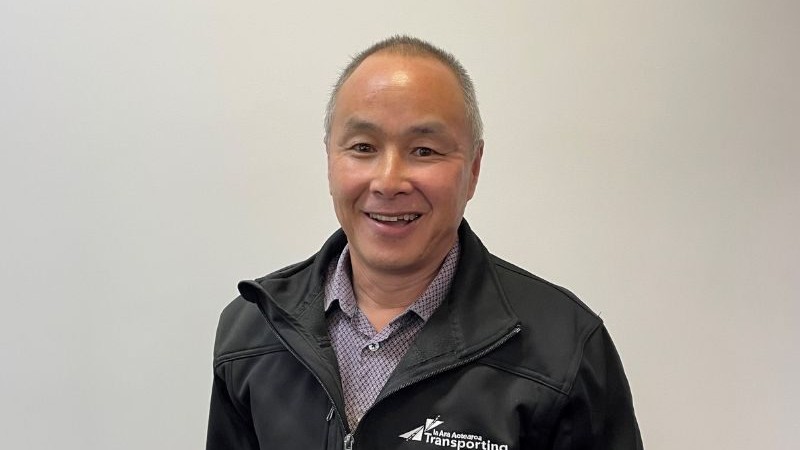The next generation is already making a difference

Over the past couple of months, life has been hectic but enjoyable and inspiring. It involved a whirlwind of tours, travelling around the country and meeting members and regional executives. Since September, I have attended the Region 5 meeting in Gore, the Hall of Fame in Invercargill, a branch event in Hawke’s Bay, the North Island Summit in Rotorua, and the NZ Road Transport Association Region 4 meeting in Christchurch.
There have been many familiar faces and it’s been great to meet some new ones, particularly the new generation of business leaders that will ultimately be managing the changes and emerging challenges. It’s now a little over 18 months since the merging of the national advocacy capability of Road Transport Forum with RTANZ’s member offer service and that time has flown.
I’ve made a number of presentations which demonstrated some of the work we’ve done, and while it would be nice to have done even more, I think we can be pretty proud of what we have delivered. I also sense a lot more is coming as a number of other projects are on the cusp of reaching critical waypoints. The recent agreement by an across-industry stakeholder group to drive and deliver legislative change and break down the barriers that land transport rules are posing to the deployment of new technology, is one good example.
As well as delivering business as usual, we’re also continuing to support our Board with the process of constitutional reform, which predominantly impacts how our Board is appointed and the role of our member associations going forward. Indeed, we are as busy as ever, and regardless of a change of government, we are likely to get even busier.
Here are some take outs from the North Island Summit. One big impact on our industry that is already making a difference and will continue to accelerate is generational change. The next generation is the future of the business. There are some great future leaders and there’s some great work being done.
One of the speakers at the summit, SBS (Safe Business Solutions) HR consultant Charlaine Barnfather, spoke about intergenerational changes. She said that now is the first time in New Zealand’s history that we have four generations (tipping to five) in the workplace – and that presents challenges and opportunities.
Charlaine shared a funny video taking a light-hearted look at intergenerational differences, called the Millennial Job Interview, and you can watch it here: https://www.youtube.com/watch?v=Uo0KjdDJr1c
Instead of the new generation having to change to accommodate old ways of doing business, it’s rather the other way round. There is lots of good stuff happening in this regard, for example, reengineering equipment so it’s easier to manage, changing shift patterns to better fit family demands, and then there are the tips in the Diversity Toolbox, which promotes attracting people from a wide variety of backgrounds.
Of course, on the flip side, I also think it’s important for young people to learn from experienced older leaders in the industry and their depth of knowledge is a valuable tool. (Sorry Amy, you do have to show up at 8:00am!)
We are also continuing to promote and encourage operators to invest in and support their staff by gaining nationally recognised certificates of competency, through Road to success.
Young people are also concerned about climate change and the environment and with good reason, as they are the ones who will have to live with the results. Our Green Compact is a practical and common-sense strategy to lower emissions and make our transport system more resilient.
I was also impressed by the changes happening around technology and data utilisation, be that vehicle data or telematics data, which ultimately results in improved driver behaviours. That came through in a number of presentations from the likes of EROAD, CCS, and NZI. The amount of data and the challenge of integrating it to achieve meaningful results is staggering. There have been massive technological improvements. Some technology ensures better driving on the road, while other technology helps make sure you are keeping track of your freight movements.
Another speaker at the summit was independent economist Cameron Bagrie, who predicts New Zealand, like other OECD countries, faces a couple more years of economic headwinds. On the positive side, it’s the companies that are well managed operationally and financially, with good awareness of risk management, that will be best placed to see their way through this tough period.
Unfortunately, I close this week on a sad note acknowledging the passing of Rachel Lehen, from Fit for Duty. Rachel was an expert in sleep and fatigue and had been involved with many heavy transport safety initiatives. I worked with her on projects in my current role and prior to joining here. Rachel was the Project Lead in a trial we are undertaking with livestock drivers, using leading edge technology that includes a cognitive performance assessment of the driver. This was internationally leading work and Rachel and I were scheduled to present a paper at an international conference next month on this trial. Rachel’s levels of drive, passion, leadership, and commitment to making change and improving road safety and the wellbeing of drivers was extraordinary. On top of that she was a really neat, genuine person. Rachel has left a real legacy and may she rest in peace.
- By Dom Kalasih, interim chief executive, Transporting NZ





